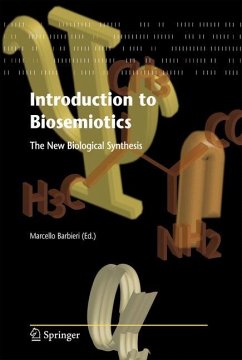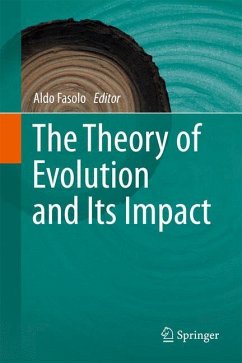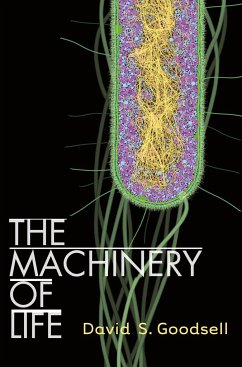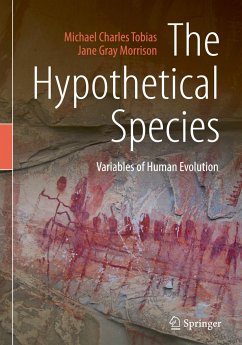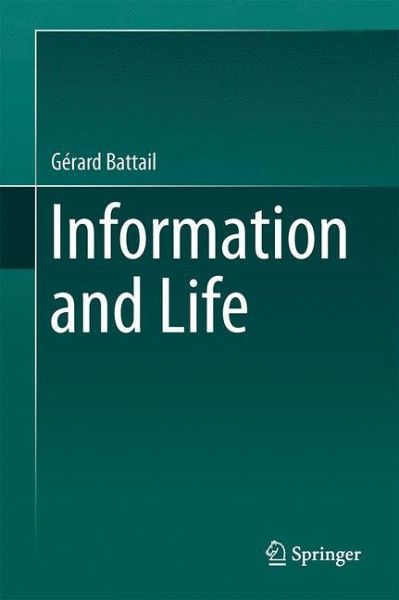
Information and Life
Versandkostenfrei!
Versandfertig in 6-10 Tagen
76,99 €
inkl. MwSt.
Weitere Ausgaben:

PAYBACK Punkte
38 °P sammeln!
Communication, one of the most important functions of life, occurs at any spatial scale from the molecular one up to that of populations and ecosystems, and any time scale from that of fast chemical reactions up to that of geological ages. Information theory, a mathematical science of communication initiated by Shannon in 1948, has been very successful in engineering, but biologists ignore it.This book aims at bridging this gap. It proposes an abstract definition of information based on the engineers' experience which makes it usable in life sciences. It expounds information theory and error-c...
Communication, one of the most important functions of life, occurs at any spatial scale from the molecular one up to that of populations and ecosystems, and any time scale from that of fast chemical reactions up to that of geological ages. Information theory, a mathematical science of communication initiated by Shannon in 1948, has been very successful in engineering, but biologists ignore it.
This book aims at bridging this gap. It proposes an abstract definition of information based on the engineers' experience which makes it usable in life sciences. It expounds information theory and error-correcting codes, its by-products, as simply as possible. Then, the fundamental biological problem of heredity is examined. It is shown that biology does not adequately account for the conservation of genomes during geological ages, which can be understood only if it is assumed that genomes are made resilient to casual errors by proper coding. Moreover, the good conservation of very old parts of genomes, like the HOX genes, implies that the assumed genomic codes have a nested structure which makes an information the more resilient to errors, the older it is.
The consequences that information theory draws from these hypotheses meet very basic but yet unexplained biological facts, e.g., the existence of successive generations, that of discrete species and the trend of evolution towards complexity. Being necessarily inscribed on physical media, information appears as a bridge between the abstract and the concrete. Recording, communicating and using information exclusively occur in the living world. Information is thus coextensive with life and delineates the border between the living and the inanimate.
This book aims at bridging this gap. It proposes an abstract definition of information based on the engineers' experience which makes it usable in life sciences. It expounds information theory and error-correcting codes, its by-products, as simply as possible. Then, the fundamental biological problem of heredity is examined. It is shown that biology does not adequately account for the conservation of genomes during geological ages, which can be understood only if it is assumed that genomes are made resilient to casual errors by proper coding. Moreover, the good conservation of very old parts of genomes, like the HOX genes, implies that the assumed genomic codes have a nested structure which makes an information the more resilient to errors, the older it is.
The consequences that information theory draws from these hypotheses meet very basic but yet unexplained biological facts, e.g., the existence of successive generations, that of discrete species and the trend of evolution towards complexity. Being necessarily inscribed on physical media, information appears as a bridge between the abstract and the concrete. Recording, communicating and using information exclusively occur in the living world. Information is thus coextensive with life and delineates the border between the living and the inanimate.




